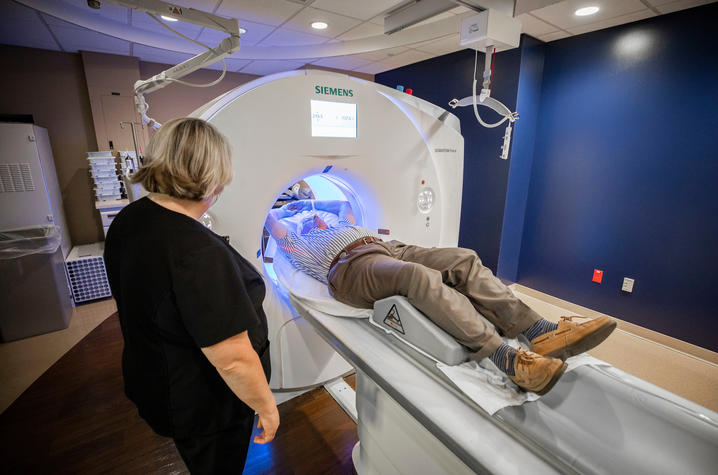Screening is your best defense against lung cancer

Dr. Timothy Mullett
University of Kentucky
For many decades, Kentucky has been leading the nation in lung cancer incidence and mortality. While this is a grim statistic, there is reason to be hopeful: more Kentuckians are surviving after a lung cancer diagnosis than ever before.
Today, lung cancer isn’t the same disease it was for older generations. Advancements in early detection and treatment mean that if found early, lung cancer can often be treated successfully – and in some cases, even cured.
Your best defense against lung cancer is to get screened. Lung cancer screening often detects cancer before there are any symptoms, when treatment is most effective.
Who should get screened? The U.S. Preventive Services Task Force recommends annual low-dose CT scans for lung cancer screening for individuals who meet the following criteria:
- Are 50 to 80 years old
- Have at least a 20-pack-year smoking history, which is determined by multiplying the number of packs a person smoked per day by the number of years the person has smoked
- Currently smoke or have quit smoking within the past 15 years
What is screening like? Lung cancer screening is a simple and painless procedure that only takes a few minutes. It involves a low-dose CT scan of your chest, requires little preparation and there are no needles or dyes.
How do I get screened? If you have used tobacco and are over 50 years old, talk to your doctor about whether screening is right for you. If you are eligible, it is a quick and easy test that can increase your chances of surviving lung cancer. Waiting for symptoms like chest pain or coughing up blood to appear means the cancer may have already spread.
Does insurance cover the screening? For those who are eligible, lung cancer screening is covered by Medicare, Medicaid and most private insurance plans without cost-sharing. In rare instances where insurance coverage is unavailable, many programs including UK’s Lung Cancer Screening Program offer screenings at a relatively low cost.
Dr. Timothy Mullett is a University of Kentucky Markey Cancer Center surgeon and the medical director of the UK Markey Cancer Center Affiliate and Research Networks.